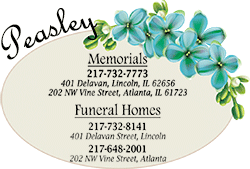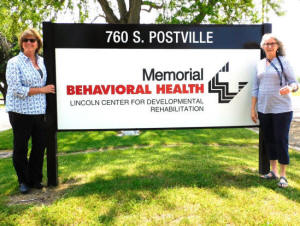|
 To
our parents it was a source of reaffirmation, that in spite of the
nastiness, we were above it and not hurt by it, but is it true? When
we were called fatso, did that little limerick make us believe it
was alright to be overweight? Probably not. To
our parents it was a source of reaffirmation, that in spite of the
nastiness, we were above it and not hurt by it, but is it true? When
we were called fatso, did that little limerick make us believe it
was alright to be overweight? Probably not.
Then there were those who picked on relentlessly those who were
different. Four-eyes for those who wore glasses, gimpy for someone
who had a disability that impacted their walking, the terrible
n-word for those of a different skin type, and the equally terrible
r-word for those who were intellectually disabled or challenged.
Those words hurt, and they sometimes caused irreversible damage.
Children who were intellectually disabled were somewhat protected in
school because they were separated from the general population a lot
of the time, participating in special education classes intended to
teach them according to their ability to learn.
But what happens when those children age out of the school system?
They are in the world, but the world does not see them, or it sees
them as a societal liability rather than an asset.

This is where Memorial Behavioral Health - Lincoln
Center for Developmental Rehabilitation (LCDR) formerly known as
Logan Mason Rehab in Lincoln comes into play, and why the program is
being named as one of the Lincoln Daily News’ 2023 Hometown Heroes.
LCDR began its history in Lincoln and Logan County at the now long
defunct Lincoln Developmental Center campus. In 1989 the service was
re-established in a new building on South Postville Drive. It was
known then as Logan/Mason Rehab, a name still used by some in the
community.
Today, it serves a large number of clients with intellectual
disabilities from a wide range of communities including those from
Lincoln and Logan County, Mason County, and Springfield/Sangamon
County.
The program was nominated because of the work it does to help
challenged individuals lead happy healthy productive lives.
Specifically the nomination spoke about the Community Day Services
program.
“The LCDR's work is very important for the individuals that
attend the programs. Some of the individuals' favorite activities
are when the staff takes them on day trips or adventures such as
fishing, walks or hiking trails at the nearby parks, attend various
area sports games.
“The clients collected and sent for recycling hundreds of pounds of
plastic caps to make a bench for their outdoor area. They assist in
the planting and maintenance of a community garden and participate
in various other activities and events.

“Once a week a small group of rotating individuals
volunteer at the Humane Society of Logan County where they socialize
with the cats and dogs, spending quality time and giving them love
and attention they might not otherwise receive due to the volume of
animals the HSLC has at a time. The quality time spent with the
animals is also very therapeutic for the individuals and has shown
to aid in decreasing unwanted behaviors and increase participation
in some individuals who volunteer.
“The LCDR aids in providing these individuals with fun activities,
learning experiences, and opportunities they might not have access
to without the Lincoln Center. The heroes aren't just the staff, but
also the loving and willing individuals that attend every day.
Together, they change the lives of each other and those around Logan
County.”

Karen Deany left; Peggy Ross-Jones
right LDN reached out the LCDR and were
graciously invited to visit the center and see firsthand the
remarkable work that goes on there. When driving past the building,
all seems quiet, and it is hard to believe just how much activity is
going on inside the building.
First, Peggy Ross-Jones is the Regional Director of Developmental
Rehabilitation and serves as the administrator at the LCDR. Karen
Deany is the Community Day Services Director and oversees the
overall plan for educational and socialization development of the
clients.
The building is divided into numerous classroom or workshop areas,
where the clients are led through a variety of activities from
maintaining what they learned in school to advancing their overall
knowledge and teaching them life skills. There is even an area where
clients perform assembly and packaging tasks for Eaton Corporation
in Lincoln and reap the reward of a regular paycheck.
Deany led a room-to-room tour of the building and shared what was
taking place in each area and how it helped the clients.
Some of the rooms included areas for reading, clients read books and
practice their comprehension. Some read aloud, practicing their
language skills as they read. Deany said that each client comes into
the program at a different level of capability and the program
design permits the clients to advance or maintain that level through
daily skill exercises. The programs are individualized to each
client.

Another room is set up for life skills development
including cooking and cleaning. Deany said that the clients learn to
make food and clean up afterward. The skills developed give them a
greater level of independence, but also enable some of the clients
to enter the workforce outside the LCDR.
Other rooms are designated for crafting which gives clients the
opportunity to exercise their imagination but also visualize an end
product and follow instruction in order to achieve that end product.
Another area the students are fond of is the art room where they can
draw and create according to their own ability.
Deany said there are three or more instructors in each room that
work with the group and one-on-one with clients as needed.
Then there is the assembly room where clients work for Eaton. Deany
and Ross-Jones both emphasized that Eaton Corporation has been a
wonderful partner with LCDR. Each morning the plant delivers bins of
parts that need to be assembled or need to be sorted and packaged.
There are two lines that the clients work with. The first is the
creation of what is called an Amp Strap. The clients take a thin
metal strap and place a plastic tube around the center of the strap.
The straps are dropped into a carton and then taken to a machine at
the back of the room where the individual straps are run through an
oven. The straps pass through the oven conveyor style and on the
other end come out and are placed into another carton for return to
Eaton. The clients who work on the Amp Straps are paid by the number
of pieces they put together each day. At the end of the day, those
who have had a good productive day can earn more than minimum wage,
but regardless of how many they get done, everyone who works on this
line earns some money.
The other part of the work in the assembly room is an hourly
position where each client collects the correct number of breakers
in a variety of sizes and boxes them into kits. Deany said this is a
great job for the higher functioning clients because, they must sort
their breakers, remember how many of each one goes into the kit,
then count out those numbers and put the breakers in the correct
order inside the kit. The kit is boxed and another worker seals the
package and it goes into a bin to go back to Eaton at the end of the
day.

Deany said that the clients have the satisfaction of
knowing that they are functioning, doing something productive and
they are earning money.
At the end of the building is the outdoor recreation area. Deany
pointed out the bench that was referred to in the nomination. She
said the clients had worked hard to gather what was needed and very
much had enjoyed the satisfaction of a job well done when they got
the bench back from recycling.
Ross-Jones said that socialization is a very important part of the
daily program at LCDR. She said that the goal is to keep the clients
intellectually and physically active and to increase their ability
to be a part of society.
Some of the fun and wonderful experiences that came unexpectedly
during the tour were the warmth of the clients and their outgoing
personalities. Many approached the tour group with smiling faces, a
hand to shake, a self-introduction and sometimes a show-and-tell
from the activity they were involved in at the moment.
Deany explained that though most consider that the
LCDR is for those with intellectual challenges, sometimes those
challenges are accompanied by physical challenges and other health
issues. There is a nurse who assists with seeing to it that
prescribed medications are handled responsibly and that clients
receive what is needed at the required time. There are also private
areas for clients who need assistance with bathroom and personal
hygiene functions.
The trips that were referenced in the nomination were also
discussed. Clients get to go some really great places. The are taken
to the local parks for walking and enjoying nature, they go to the
Lincoln Memorial Health Wellness Trail for walking, and they get to
do really fun things like go to the zoo in Springfield or have a
cook-out picnic to celebrate all the birthdays in the month.
[to top of second column] |

Transportation for the clients is via buses, and
again the name Eaton Corporation was mentioned. Eaton made it
possible for the LCDR to have a wheelchair bus for their day trips.
The company has also donated I-pads for classroom use, a dishwasher
for the life science room and a popcorn maker and popcorn for weekly
treat for the clients.
A Success Story – Amber Farmer
Looking at the program from the outside, one can understand how all
the work being done at the LCDR is designed to help intellectually
challenged individuals live a happy and productive life but seeing
it firsthand drives it home even more.
Amber Farmer is well known in the Lincoln Community. She is active,
loves to go places, is often seen in the community at events such as
Third Friday’s Downtown, and has a good friend, Seth Goodman, whom
she enjoys spending time with.
Farmer and Goodman go back several years. They met in high school.
Both remember the day and the first encounter. Farmer remembers it
was not a good day for her. Fellow students were being mean to her,
picking on her and making her feel very bad and insecure. She
remembers that it was Goodman who made it better. Goodman remembers
the day saying he saw a young girl who was so hurt that she couldn’t
even make eye contact. He said that day, their sole communication
was a high-five they shared, with Farmer holding her head down, no
eye contact, no words. A simple communication that was very
difficult for a young girl whose self-esteem had just suffered a
heavy blow.

But the friendship became more communicative as time
went by and today Farmer will tell you that at the top of her list
of friends is Seth Goodman. She has other friends as well and people
that she likes spending time with. She says at LCRD Karen (Deany) is
her favorite person, but there are several others there that she
likes as well. She has a special friend and enjoys spending time
with him in person as well as multiple texts on her cellphone every
day.
She loves to go places, likes to eat out, and she is artistic. She
likes to paint and was happy to share a painting she had done at a
local joy of painting fundraiser. The bunny was a project that
everyone in the class was working on, and Farmer turned out a
remarkable product that got the attention of all her fellow students
that evening. It also got plenty of attention from Goodman.

Goodman said that when the painting was finished,
Farmer brought it straight to his office, and presented it to him as
a gift.
Amber works in the assembly room two days a week at LCDR and earns
her own money for things she needs and wants. Goodman said that she
is good with money and does well in managing what she has.
In addition to working in the assembly room, Farmer also worked for
a while at Lincoln College in the kitchen and dining room area.
Lessons she learned in the life science workshops enabled her to
work outside of the LCDR until the college had to cut back before
eventually closing all together.
Though Farmer made the decision to move back into her family home,
she has lived on her own. She had an apartment at the Logan County
Housing Authority for a while. The fire at the apartment building, a
period of time stuck in the elevator, and an unhappy experience with
a fellow tenant led her to decide that she would be happier and
healthier back at home. But she still has freedom and decides for
herself when she does what.
She looks forward to going to LCDR daily. She likes to work, she
likes the staff, and she likes her fellow clients.
Goodman said he felt that one of the most important things Farmer
has learned is that she is not alone in the world. He said sometimes
he feels that people who are different in whatever way get to
feeling like they are the only one who is different. At LCDR, Farmer
knows that she is with people who understand her challenges, just as
she understands theirs.

Farmer said that she loves popcorn day, she likes to
go to the park and just sit and enjoy the scenery and fresh air. She
likes going on field trips to places like the zoo, and she looks
forward to each day.
Goodman said Farmer is no longer that uncommunicative young girl who
allows other people to hurt her and take away her self-esteem and
dignity. She is outgoing, friendly, still a little shy on occasion,
but very capable of standing up for herself and not letting others
make her feel like she is inferior or defective.
Farmer said that as part of being with the LCDR she has a case
worker that visits on a regular basis. The conversations usually
revolve around how Farmer is doing in general, the friendships and
relationships she is in, is she staying healthy and taking good care
of herself, is she part of the community and does she get out and
have fun in social settings. They also talk about whether or not
Farmer is ready to become more independent, is she thinking about
living alone again, would she like to have a job outside of LCDR.
Farmer right now at least doesn’t want to move away from her family.
She likes where she is and enjoys being with her mom and all the
pets at home, one dog and a number of cats and kittens. She would
entertain the idea of taking a job outside of the LCDR because she
liked the work she did at the college, and she enjoyed the reward of
a paycheck.
Socially, she makes life-long friends. Goodman is one as is his mom
Gaynor. Goodman says that once she makes a friend, she is loyal to
that person, and will always be ready to say hello and visit with
the people she sees in the community whom she likes.
Back at LCDR Farmer’s name is mentioned to Deany and Ross-Jones.
They know the young woman well and are pleased with how she has
progressed over the years she has been at the LCDR. And, yes, she is
one of several success stories at the LCDR. The two say that the end
goal for all of their clients is to see them lead happy, productive
lives where that they don’t feel isolated, but rather know and
understand that while they may be different, they have great value
in our society, and they are loved by many people.

“Sticks and stones may break my bones, but names can
never hurt me.” It is not true. Names can do terrible damage.
Negatively labeling a person who is challenged in any way is as
destructive as doing physical harm.
And that is why the Memorial Behavioral Health LCDR is our Hometown
Hero this year, because they erase the stereotyping, they see the
individuals and respond to their needs to make each client better
and ultimately happier.
Ross-Jones and Deany both said it was gratifying to be recognized
for the work of the entire staff at LCDR, but there is also a lot of
heroism in the clients. It isn’t just the program, it is the people
who are in it that are so special in a very good way, so important
in ways that they don’t even realize sometimes, and so worth the
effort that the staff invests on a daily basis.
Deany said that being chosen has given Ross-Jones and herself the
opportunity to share a little bit about what goes on inside and
outside of that building on South Postville Drive. She hopes that by
sharing the story with the community, those who were unaware will
walk away with a better understanding of what is done there and why
it is so important.
“Names can never hurt me.” The only time that is really true is when
the name is something positive. So, we’ll give the LCDR a name that
we hope others will learn to use as well.
And that name is “Hero.”
 |